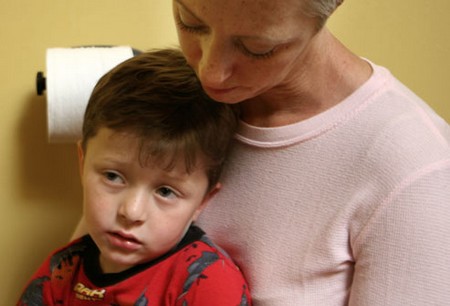Encourage your child to have relationships with other trusted adults from whom you believe your child can gain information, receive love, and regard as a role model for positive behaviors. Such a “significant other” will help you build your child’s self-esteem. Such a person will give your child confidence that he or she won’t be alone in the world should something happen to you.
Children need to have assurance that they will be cared for should their parents die. Children may be exposed at an early age to death and to separation from parents. They wonder, and often wonder aloud, “What will happen to me if you aren’t here?” Be sure you can give your child a concrete answer. Part of your responsibility as a loving parent is to make sure your child does have a place to go and someone who will care for him or her in the event that you become incapacitated or die.

On an everyday level, encourage your child to have a good relationship with grandparents, aunts, and uncles. This is a real challenge in homes broken apart by divorce; recognize that no matter how much pain you have felt, your child still needs to have a relationship with your spouse and his or her family members. To rob your child of half of his or her extended family is to rob your child of many invaluable memories and experiences. Children won’t understand why they have been cut off from a loving grandfather or grandmother just because daddy or mommy went away. You will only be deepening a child’s sense of loss by forcing a separation from your former spouse’s relatives.
One of the hallmarks of a significant other for your child will be the fact that this person wants to spend time with your child and wants to be a part of his or her life. Look for those adults who truly enjoy being with your child, and with whom your child enjoys spending time. Foster those relationships by
- allowing your child to spend time with this person.
- encouraging your child to talk over problems with this person.
- helping your child to choose gifts for this person, and to show gratitude for gifts received from him or her.
- regarding this person as an extended part of your family in your conversations and activities.
Encourage your child to invite his or her significant others to school plays, soccer games, youth choir concerts, and other events. Invite the person to participate in family outings.
Don’t be hurt, and don’t let your child’s feelings be hurt, if your child’s “older friend” can’t accept all such invitations. “Maybe next time” is a good response to teach children in such situations.
Let your child know the limitations of authority and responsibility that a significant other has over him. (Talk that over with the significant other, too!)
Do have periodic conversations with your child’s godparents, aunts and uncles, or grandparents about your child. Let them know a little of what your child is experiencing and with what he or she is struggling. Let them know your child’s accomplishments and disappointments. Let them know about his or her activities and interests. This will give these significant others clues as to how to talk to your child, what to listen for, and what to buy for Christmas presents!
Children who have at least one or two other adults to whom they can turn for advice, friendship, understanding, and hugs have confidence that they are valued beyond the immediate family. They know they are not alone, even when parents are unavailable. Give your child that kind of boost to his or her esteem and confidence level!